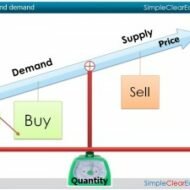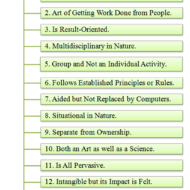Posted by Managementguru in Economics, Financial Management, Principles of Management
on Mar 15th, 2014 | 0 comments

Demand vs. Supply- Parameter deciding market equilibrium The success of economic freedom of a country is naturally reflected in the form of human prosperity. Countries like India are evidencing a consistent increase in their annual GDP rates which obviously must have reduced the population percentage living below poverty line; yet this has not been accomplished and the question is, is it really something to do with the economic model or is it the bureaucracy and inefficiency the root cause for the strain in the economy? Flow of Economic Activity: This discussion aims at shedding some light on the flow of economic activity in a free market economy. The elemental players or contributors in a free enterprise market economy are individuals and firms. Individuals who own or control resources (in the form of labor, capital or natural resources), sell these resources to firms and obtain money. These resources which serve as necessary inputs in the production process add value to firms. The money received by individuals is called factor payment which is utilized to fulfill their consumption demands of goods and services. Two distinct areas of interaction exist between the individuals and firms. One is the product market where the products are bought and sold and the other being a market for production factors, where the inputs such as labor, capital and natural resources are traded. What is the activity in a product market? Fundamentally business is all about demand vs. supply. The consumers’ demand has to be met with by the manufacturers. Profit is the primary motive of any firm and the priority of a firm lies in responding to the demands of the consumer market by supplying goods and services to the potential and prospective buyers. Input costs and production technology are the determinants of supply conditions. People’s preferences and earnings decide the elasticity of market demand. The price of the product and quantity sold is a result of the interaction between demand and supply. In a product market money flows from consumers to firms and goods and services flow from firms to consumers. What happens in a factor market? The reverse of those conditions in the product market are seen in a factor market. Here the individual becomes the supplier of production factors and hence the money flows from firms to individuals and factors of production from individuals to firms. Prices and profits control the flow of money and resources through the factor market and flow of money and goods through the product market. What is a Free Market Enterprise? Added advantage of a free market enterprise is that, the effortlessness with which one can enter and exit the market. The activity flow proves advantageous to each person involved .Firms make profits, individuals are satisfied of their consumption demand for goods and services, resource owners are compensated for their services. If an individual is not able to benefit by trading in these markets, he or she is not required to do so or free to leave the market which ensures that nobody is made worse off by voluntary trade in these markets. Essentially countries have to go in for suitable economic restructuring that promotes equality and even distribution of wealth. Wall Street protest in US is a clear-cut indication of strained market economy which is a result of people’s fury against the prevailing economic...

Posted by Managementguru in Business Management, Principles of Management
on Feb 15th, 2014 | 0 comments

Nature and Characteristics of Management Some good definitions on Management: According to Harold Koontz, “Management is the art of getting things done through and with people in formally organised groups.”- in his book “The Management Theory Jungle”. According to Henri Fayol, “To manage is to forecast and to plan, to organise, to command, to co-ordinate and to control.”- in his book “Industrial and General Administration”. According to Peter Drucker, “Management is a multi-purpose organ that manages business and manages managers and manages workers and work.”- in his book “The Principles of Management”. According to Mary Parker Follet, “Management is the art of getting things done through people.” According to William F.Glueck, Management is the effective utilization of human and material resources to achieve the enterprise objective. Concepts of Management: Management as an Activity Leader is the Manager Team consist of the Subordinates Synergy – Leads to enhanced performance The activities of management are: Interpersonal activities Decisional activities Informative activities Management as a Process Management is a continuous process involving interaction of people and integration of human, physical and financial resources. Management as an Economic Resource Management is an important factor of production like Land Labor and Capital Management as a Team The team comprises of Top level management- CEO ,CHAIRMAN,PRESIDENT and the like Middle level management-Department Heads Low level management-Work force or the Employees Pic Courtesy: Charismatic Leaders Management as an Academic Discipline Getting a management degree has become the order of the day and many reputed educational institutions are coming out with a new discipline in management course every day that rewards an exciting and challenging career for the graduates. Management professionals are the need of the hour for corporate companies to manage the dynamic environment that poses very many challeneges. Management as a Group Chief executive (managing director), Departmental heads Supervisors make up the management group. Nature and Characteristics of Management 1. Management is goal-oriented: The ultimate purpose of management is to achieve certain goals over a period of time. The goals must be realistic and achievable that ensure efficient utilization of the resources and satisfy the enterprise objectives. 2. Management is universal: Where ever there is a business activity or non-business activity, management comes into the fore. Be it a small family function or a multi crore business activity, you need people and other resources to make it a success. 3. Management is an Integrative Force: Team work creates synergy and accomplishment of the firm’s objectives by the unified and co-ordinated efforts of all the individuals working for that firm. Note: 1+1=2, we all know that . Have you heard of 1+1>2 , Yes, synergy is the combined effort of all the people working as a team that leads to enhanced performance levels facilitating the completion of objectives in a short span of time. Dhirubhai Ambani was very popular for completing tasks in lightning speed. This was possible only because he had able administrators who shared the same kind of wavelength. 4. Management is a Social Process: You can become an excellent manager without becoming a good leader, but you cannot be an excellent leader without becoming a good manager. This explains it all. Management is a social process since it involves people and their inter personal relationship. A good manager succeeds in motivating , guiding and extracting work from people working under him. 5. Management is multidisciplinary: Management takes inspiration from disciplines like engineering, sociology, psychology, economics, anthropology etc. 6. Management is a continuous Process: Management is a dynamic and an on-going process. A business has to die on its own. 7. Management is Intangible: The success of management can only be measured...




